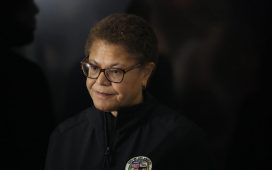Deep-pocketed customers helped insulate the U.S. luxury market from the brunt of the pandemic fallout last year.
U.S. luxury sales fell 11 percent in 2020, compared with a 14 percent slide for the overall industry. Luxury brands delivered 2,030,912 vehicles, accounting for a record 14 percent of total U.S. light-vehicle sales.
BMW defended its sales crown as the bestselling luxury car brand in the U.S. for the second year in a row, while demand for hybrids and crossovers propelled Lexus to inch ahead of Mercedes-Benz.
Despite inventory shortages earlier in the year, BMW rallied to take pole position in 2020, reporting 278,732 deliveries, down 18 percent.
“There is no doubt that 2020 was a challenging year for automotive sales, but we have found that these challenges were due more to the circumstances, rather than consumer demand,” BMW North America CEO Bernhard Kuhnt said in a statement.
Lexus delivered 275,041 vehicles last year — outselling Mercedes by a mere 125 vehicles. Lexus’ hybrid sales rose nearly 2 percent in 2020.
Mercedes reported 274,916 U.S. sales last year, down 13 percent from 2019.
Tesla Inc., which only releases global deliveries, is excluded from the results because the California electric vehicle maker does not provide model sales by country.
The market shift away from sedans is especially pronounced in the luxury segment, said Eric Ibara, director of residual values at Cox Automotive.
Luxury sedan sales fell 43 percent last year, vs. a 15 percent decline in overall car volume, Ibara noted.
“You don’t buy a luxury vehicle because you need transportation,” he said. “It’s a statement of status, and the SUV better conveys that.”







